当前位置: Language Tips> 双语新闻
《爱丽丝梦游仙境》不仅编织了一个奇妙荒诞,充满想象力的地下世界,还制造了很多英语流行语,down the rabbit hole(进入未知的天地),mad as a hatter(疯疯癫癫)以及jabberwocky(胡说八道)等常用语的流行都和这个童话有关。
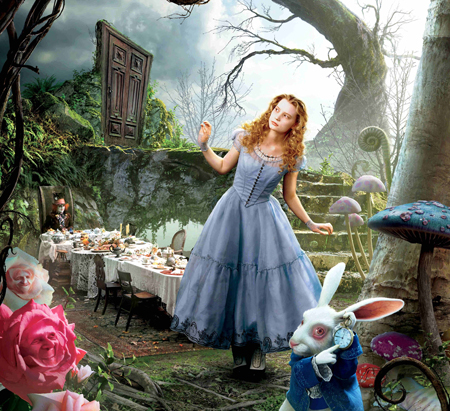
1. DOWN THE RABBIT HOLE
进入未知的天地
Down the rabbit hole is a metaphor for adventure into the unknown. This phrase “started appearing almost immediately after the book was first published” in 1865, says Carolyn Vega, curator of the Morgan Library’s exhibit "Alice: 150 Years of Wonderland".
Down the rabbit hole(掉进兔子洞)指一场未知的冒险。摩根图书馆《爱丽丝:150年的仙境》展览的策展人卡洛琳•韦加表示,在1865年《爱丽丝梦游仙境》出版之后,down the rabbit hole这种说法几乎立刻出现了。
Down the Rabbit Hole实际上是书中第一章节的标题。主人公爱丽丝因为追赶一只揣着怀表、会说话的白兔,掉进了一个兔子洞,由此坠入了神奇的地下世界。
2. MAD AS A HATTER
疯疯癫癫
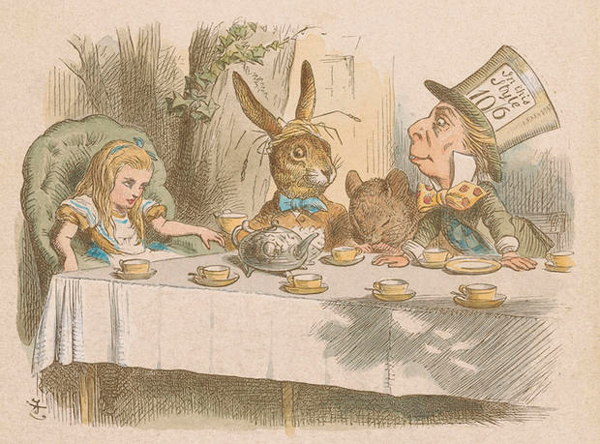
Mad as a hatter is to suggest that a person is suffering from insanity. The phrase had been in use since 1835 to describe an unusual medical condition affecting hat manufacturers.
Mad as a hatter指一个人出现精神错乱。从1835年起,这个短语就用来形容一种帽子制作者身上患有的病症。
In 18th and 19th century England mercury was used in the production of felt, which was used in the manufacturing of hats common of the time.
在18世纪和19世纪时期,英国人通常会使用含有汞的毛毡布料制作帽子。
一些帽子手工匠因长期接触含汞织物而发生汞中毒,口齿不清、战栗、步履蹒跚、甚至失去意识,而人们就用mad as a hatter来形容出现这类症状的人。
这种说法流传至今离不开卡罗尔这个营销天才。Hatter是《爱丽丝梦游仙境》中的一个角色,擅长制帽与剪裁。由于他性格怪诞、疯癫,也被书迷称为Mad Hatter,“疯帽子”。
“He was the first children’s book author to license his characters for use on other products, so the characters had individual lives,” says Vega, “The characters become familiar to a group of people wider than the readership of the book.”
韦加称,“卡罗尔是第一个将自己的角色授权给其他商品使用的儿童文学作家。这些角色因此有了各自的人生。除了原著读者之外,他们能被更多人所熟知。”
3. CHESHIRE CAT GRIN
咧嘴坏笑
Much as with our buddy the Mad Hatter, the Cheshire Cat has been ingrained in the membrane. The adjectival phrase is, once again, associated with a specific character. So whenever someone describes a person as grinning like a Cheshire cat, we can picture that huge, mischievous—and slightly unsettling—smile.
和“疯帽子”一样,“柴郡猫”(Cheshire Cat)的形象也已深入人心。Cheshire Cat grin的含义也和书中角色有关。所以,每当有人用Cheshire Cat grin来形容一个人的笑容时,我们可以想象一张戏谑而略显阴森的巨大笑脸。
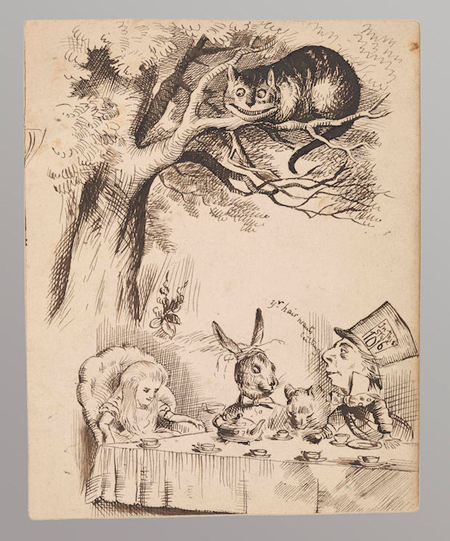
4. OFF WITH THEIR HEADS!
砍掉他们的头!
“红心王后”性格跋扈残暴,统治残暴,成天叫嚷着“砍掉他们的脑袋”(Off with their heads!)。
Sure, Shakespeare scribbled it first—but Carroll’s Queen of Hearts certainly popularized the imperative.
虽然这句台词出自莎士比亚,但卡罗尔笔下的“红心王后”确实让它流行起来了。
现在,人们经常用这句话开玩笑,表示想要除掉那些有问题的人。
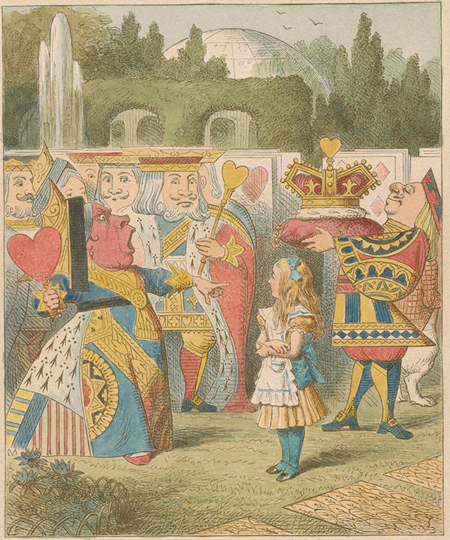
5. TWEEDLEDEE AND TWEEDLEDUM
半斤八两
From the 1871 sequel, Through the Looking-Glass, and What Alice Found There, this one’s particularly useful for playground battles, presidential campaigns, and Halloween.
自从1871年《爱丽丝梦游仙境》的续集《爱丽丝镜中奇遇记》出版后,Tweedledee和 Tweedledum就经常用来形容操场斗殴、总统大选以及万圣节。
Tweedle-Dee和Tweedle-Dum实际上是《爱丽丝镜中奇遇记》中的一对双胞胎。
6. JABBERWOCKY
胡说八道
Prior to its 1871 print debut, jabberwocky was a nonsense word that served as the nonsense title of a nonsense poem in Through the Looking-Glass. Now, it’s a real entry in the real dictionary that really means “meaningless speech.”
在1871年《爱丽丝镜中奇遇记》面世之前,jabberwocky就是故事中一首毫无意义的诗歌的毫无意义的标题中的一个毫无意义的单词。现在jabberwocky已经被收录进字典,用来表示“毫无意义的废话”。
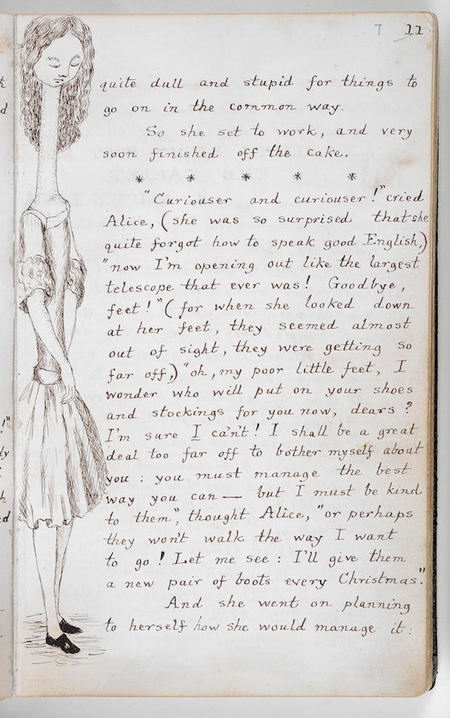
英文来源:mentalfloss.com
翻译&编辑:董静
审校:yaning
上一篇 : 如何让孩子远离性侵伤害?
下一篇 :
关注和订阅

电话:8610-84883645
传真:8610-84883500
Email: languagetips@chinadaily.com.cn